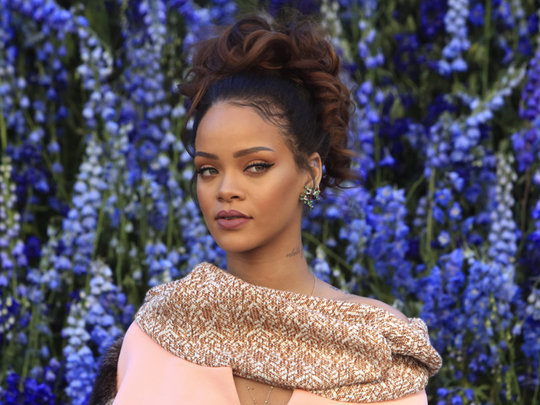
A small little tweet by an American pop star has become a matter of public debate in India. It seems to be a graver threat than anything on our borders. Lo and behold! India is defending itself against an attack from Rihanna! Hope we’ve banned her Fenty beauty products already.
Rihanna’s tweet, bringing global attention to ongoing farmers’ protests in India, has been followed up by similar copycat expressions of concerns by various other global celebrities. India’s Ministry of External Affairs has urged these global celebrities to inform themselves better about the ongoing protests.
They’re all missing the woods for the trees. Rihanna’s tweet was less about farmers and more about internet shutdown in the area around Delhi’s borders where the protesting farmers have decided to stay put.
“India cuts internet around New Delhi as protesting farmers clash with police,” read a CNN headline, posted by Rihanna with the comment, “Why aren’t we talking about this? #FarmersProtest”.
The CNN story, like its headline, is a full explainer on the farmers’ protests but chooses to lead with the internet shutdown. And the idea of a mass internet shutdown seems to have caused great concern for the pop singer.
More by Shivam Vij
The Indian response has focused on the farmers’ issue, because we are so used to internet shutdowns that we no longer realise how egregious and unacceptable a thing it is.
The bureaucratic excuse for internet shutdowns is, of course, law and order. Many governments across the world are spooked by the power of the internet to cause mass eruptions of public anger. It doesn’t even need a leader, organiser, someone to take permissions and responsibility.
In the winter of 2012, as Delhi was protesting non-stop against rape, I asked a police officer why there were more riot policemen than protesters here.
Surely we are not so dangerous? We were a harmless bunch protesting for a cause that wasn’t about to cause revolution.
The police officer replied these days, thanks to the internet, the police doesn’t even know how many people will turn up for a protest. So they have to be prepared better.
Yet this idea of containing every protest, fearing crowds and people marching with slogans, is exaggerated. Most protests don’t intend to turn violent and if that’s the fear, then security forces can contain them in an area — just as the farmers’ protests are contained in Delhi’s borders, having been denied permission to protest in Ram Lila Maidan in the heart of Delhi.
The protesters have been gaining traction through the internet. Despite a hostile media, the internet has helped them educate the public about their point of view, their side of the story. The internet shutdowns around the protest area don’t seem to be emanating from security concerns.
A small section of protesters became violent on 26 January not because of the internet but because they were allowed to take out a rally in Delhi, and security forces failed to prevent them from entering and vandalising the Red Fort.
Unacceptable internet shutdowns
The internet shutdown then, looks more political than security driven. It seems to be more about not letting the protesters have their voices heard. Such internet shutdowns are not acceptable.
One might still understand an internet shutdown for a few hours if there is a fear of great violence, such as intercommunity riots multiplying through rumours and misinformation. But internet shutdowns in India can last months.
According to InternetShutdowns, internet shutdown tracker, India’s longest shutdown was in the Kashmir Valley in 2019-20, lasting 213 days. A similar one in Kargil lasted 145 days. In 2017, a shutdown in Darjeeling, West Bengal, a shutdown lasted 100 days.
The first time India did an internet shutdown was in 2012. In 2018, India saw 134 instances of shutdowns. In 2020, the pandemic year when you’d expect people to not be very eager to protest, there were 83 shutdowns. This year is only a month old and has already seen 7 instances.
Modern life is impossible without the internet. In a world where we speak of internet access as a basic fundamental right, shutting down the internet to manage protests and grievances is an overreach.
Doing it ever so often, becoming the number 1 internet shutdown country in the world, is deeply problematic.







